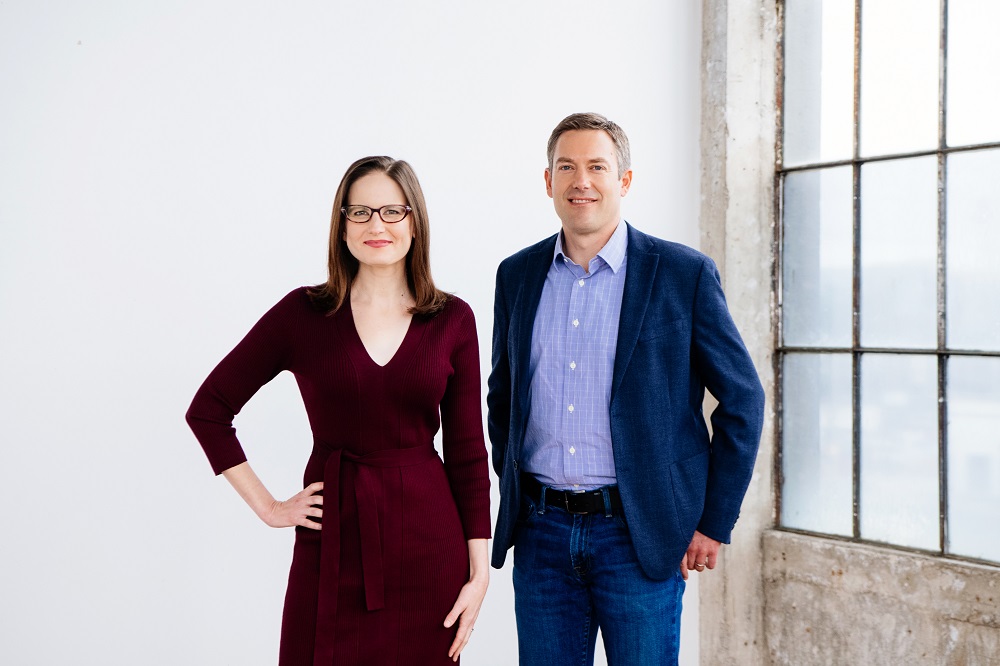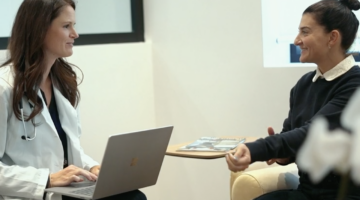
The road for any successful drug comes with some wrong turns and detours, so scientists celebrate the successes that come along the way. Nathan Trinklein, co-founder and chief scientific officer of Rondo Therapeutics, remembers one particular success at his previous company. A patient in a clinical trial had a tumor that looked like it was about the size of a baseball from the imaging scan. But after treatment with the experimental therapy, Trinklein said it just vanished.

Solving Healthcare’s Provider Data Problem Starts with Interoperability
Break down the silos. Take control of your provider data.
“To see a drug you drew up on paper, early on, and then see a patient tumor actually melt away in a Phase 1 trial, it’s a profound thing,” he said.
The company that developed that therapy, Teneobio, specialized in a type of cancer drug called a bispecific antibody. Amgen acquired the biotech last summer for $900 million up front, which is also a success worth celebrating. But Trinklein and former Teneobio colleague Shelley Force Aldred have unfinished business. Though bispecific antibodies have worked on blood cancers, they’ve fallen short against solid tumors. Trinklein and Force Aldred, Rondo’s CEO, formed the company to advance the science of bispecific antibodies and tackle solid tumors. The San Francisco-based startup launched Wednesday, backed by $67 million in financing.
Unlike a monoclonal antibody that only binds to one target, a bispecific antibody has two arms, one that binds to a protein on the surface of T cells and the other that binds to an antigen on a cancer cell. Latching on to these two molecules simultaneously brings the T cell close to the tumor so it can carry out its cancer-killing work.
For most bispecific antibodies in development, including those developed by Teneobio, the arm that latches onto the T cell binds to a protein called CD3. Trinklein said the scientific field is finding it more difficult for bispecific antibodies to treat solid tumors if they just go after CD3. Solid tumors are more challenging than liquid tumors because they have more components that suppress the immune response. Even if a drug can activate an immune response by binding to CD3, a solid tumor quickly shuts down that response, Trinklein said.
The immune system has different layers of function, said Force Aldred. Engaging the T cell receptor stimulates an immune response, one that works for liquid tumors. But in the more complex environment of solid tumors, a drug needs to reach another layer. Force Aldred said that Rondo’s drug will be able to not only trigger the immune response, but also sustain it. Trinklein likened the approach to starting a car (as in automobile, not this type of a CAR).
“How do you start the car but keep it running long enough to do something? That’s what we’re trying to do,” he said. “Start the car, keep it running so those T cells can do their job and kill the tumor cells.”
Rondo is pursuing new targets and pairing them with antigens that have not previously been explored. Without specifying those targets, Trinklein said that some of them have well-known biology from scientific research, but they have not been developed for bispecific antibodies. Antibody research in the past 30 years focused on finding the ones with the highest affinity for binding to a target, Trinklein said. But with Rondo’s approach, higher affinity is not necessarily what’s needed. If binding to the receptor overactivates the T cell, that can spark toxic effects.
Rondo’s approach uses antibodies that bind to and activate immune cells just right—what Force Aldred calls “the Goldilocks zone.” Just as a car might need a small nudge of acceleration rather than a stomp on the pedal that could crash the vehicle, a Rondo drug gently steps on the gas by activating a T cell to spark activity, but not so much that it causes toxic effects.
“You have to do that very carefully,” Force Aldred said. “You have to find the Goldilocks zone when you step on the gas.”
Rondo has plenty of company in the pursuit of biologic drugs simultaneously bind to T cells and solid tumors. Takeda Pharmaceutical acquired partner Maverick Therapeutics last year in order to gain control of programs focused on a type of bispecific antibody called a T cell engager. Janux Therapeutics, which is partnered with Merck, is also developing T cell engagers. Late last year, Bristol Myers Squibb acquired rights to an Immatics lead drug candidate, an antibody-like biologic with two components, one that binds to and activates a T cell and the other that targets an antigen on a cancer cell. Weeks later, Sanofi agreed to pay $1 billion up front to acquire Amunix Pharmaceuticals, a company developing T cell engagers that employ a technology that masks them until they reach their destination, an approach intended to overcome the toxicity challenges of other types of cancer treatment.
Rondo formed in 2020, according to California corporation records. Force Aldred said the biotech got up to full speed last year with a seed investment from friends and family that laid the groundwork for the Series A financing announced this week. That round was led by Red Tree Venture Capital and Canaan Partners. Other participants include Johnson & Johnson Innovation – JJDC, Novo Holdings, and SV Health Investors.
Rondo has two bispecific programs and two early preclinical leads in hand, Force Aldred said. The two bispecifc programs address two different types of cancer, which are undisclosed. With the Series A cash, Rondo plans to advance the lead programs to the clinic to validate the biotech’s approach in solid tumors.
Photo by Rondo Therapeutics








